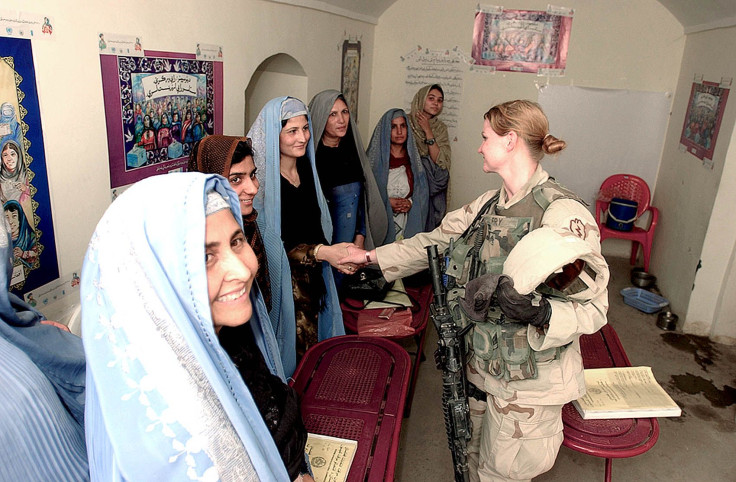Pentagon Combats Sexual Assault In Military With New Options For Legal Help And Transfer

The U.S. military this month announced several new policy changes to fight the endemic problem of sexual assault within the ranks, with the idea of strengthening support services for victims.
By the Pentagon’s own estimates, service members endured some 22,800 sexual assaults in 2011, including one in every five women on active duty. A report released earlier this year following a survey of the military found that nearly half of victims are women ages 18-21 but that 10 percent of victims are men.
Perhaps the biggest policy change would be the creation of a legal advocacy program within each service to provide legal representation to victims of sexual assault, according to a statement released from U.S. Secretary of Defense Chuck Hagel, who also directed that commanders be enabled to transfer or reassign victims to different basses — thereby protecting them from harassment or ostracism from perpetrators.
Other steps include regular follow-up reports on sexual assault complaints, with responses provided to the highest levels of command; developing standardized regulations regarding appropriate conduct between recruiters and trainers with their young military charges; identifying changes to military trial rules to allow victims to provide testimony during the sentencing phase of the court-martial; and ensuring that pre-trial investigative hearings be conducted by a military judge, as opposed to another officer.
Hagel also directed the military’s inspector general to regularly evaluate sexual assault investigations closed to the public for security reasons.
Jessica Wright, the acting undersecretary of defense for personnel and readiness, told reporters the military was preparing for a force with more women as the services continue to open combat jobs to qualified female service members. “The bottom line is sexual assault is not tolerated, not condoned, it’s not ignored, and everyone in the department from the newest enlistee to the secretary of defense and everyone in between are responsible to uphold our values and continue an environment of dignity and respect for all,” Wright said.
Likewise, Lt. Gen. Curtis Scaparrotti said the new steps would improve the military’s ability “to combat sexual assault by standardizing and enhancing victim support and protection, elevating oversight, and improving investigations.” In making these policy changes, Pentagon officials considered “best practices” from military and civilian communities, he said. “Where we have found best practices, we have moved to them common practices throughout our services.”
However, some skeptics on Capitol Hill said the policy changes would fail to alleviate the chilling effect that many victims of sexual assault feel about reporting the crime. Sen. Kirsten Gillibrand, a democrat from New York, noted in a written statement that, while the steps move in the right direction, they “are not the leap forward required to solve the problem.”
Rep. Howard P. McKeon, a democrat from California who chairs the House Armed Services Committee, expressed support for Pentagon leaders “continuing to address this very real problem.”
Below is a video clip from The Invisible War, which aired on PBS on May 13. The film focuses on the emotional stories of women who have been victimized by sexual assault in the military and begins with this startling fact: an American woman serving in combat today is more likley to be raped by a fellow soldier than to be shot by enemy forces.



























